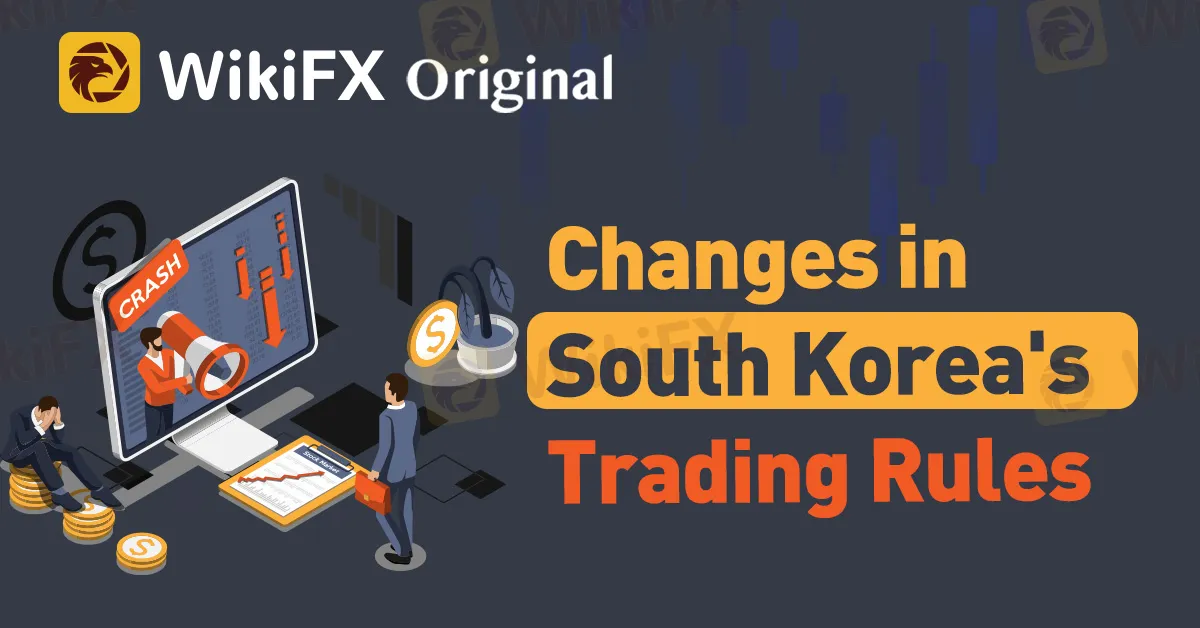简体中文
繁體中文
English
Pусский
日本語
ภาษาไทย
Tiếng Việt
Bahasa Indonesia
Español
हिन्दी
Filippiiniläinen
Français
Deutsch
Português
Türkçe
한국어
العربية
Changes in South Korea's Trading Rules
Abstract:South Korean financial market regulators are implementing stringent regulations on contracts for differences (CFDs) trading to enhance transparency, prevent market manipulations, and address recent incidents of losses and volatility in the market, aiming to restore trust and protect investors.

South Korean financial market regulators are set to introduce comprehensive regulations for contracts for differences (CFDs) trading to ensure transparency and prevent market manipulations, according to reports from various local news outlets. The official announcement comes after eight South Korean stocks experienced continuous declines for nearly a week due to the effects of CFDs trading, resulting in losses exceeding 100 billion won ($77 million) as CFDs accounts were liquidated. The Financial Services Commission (FSC), the Financial Supervisory Service (FSS), Korea Exchange, and the Korea Financial Investment Association have jointly unveiled these measures.
In the current regulatory framework, retail investors are categorized as either institutions if their transactions are processed by a local broker, or foreign investors if handled by a foreign broker, leading to confusion regarding the origin of investments. To address this, Kim So-young, Vice Chairman of the FSC, stated that the financial authorities will revamp CFD trading regulations, aiming to provide investors with accurate information about transactions, including the identification of real investors involved and the level of associated liquidation risks. This transparency will enable investors to make informed and prudent investment decisions.

The South Korean authorities also aim to raise the standards for qualifying as a professional investor, making the criteria more stringent. Additionally, brokers will be required to verify the qualification of professional investors every two years. Furthermore, new regulations will mandate face-to-face authentication for opening CFDs accounts, replacing the previous online authentication method without in-person verification.
Meanwhile, the regulators have recommended temporarily restricting CFDs trading and account opening in the country until the new regulations come into effect. Many local brokers have already halted customers from opening new accounts since the end of April, following the controversy surrounding CFDs trading. The FSS conducted inspections on several CFDs brokers, uncovering cases where accounts were opened without proper identification verification and brokers engaged in misleading advertisements for risky investment instruments. The investigation by the FSS is ongoing, including an examination of a brokerage executive, with plans to expand the scope if necessary.
Kim emphasized that recent unfair transactions have damaged trust in the capital market and dampened investment sentiment. The government and relevant institutions acknowledge their significant responsibility and are committed to swiftly and rigorously resolving the issues at hand, aiming to restore trust and rectify the problems that have arisen.

Disclaimer:
The views in this article only represent the author's personal views, and do not constitute investment advice on this platform. This platform does not guarantee the accuracy, completeness and timeliness of the information in the article, and will not be liable for any loss caused by the use of or reliance on the information in the article.
Read more

Never Heard of Dynasty Trade? Here's Why You Should Be Worried
Have you heard this name before? No , it’s time you do because staying unaware could cost you. This platform is currently active in the forex trading and has been linked to several suspicious activities. Even if you’ve never dealt with it directly, there’s a chance it could reach out to you through ads, calls, messages, or social media. That’s why it’s important to know the red flags in advance.

Want to Deposit in the EVM Prime Platform? Stop Before You Lose It ALL
Contemplating forex investments in the EVM Prime platform? Think again! We empathize with those who have been bearing losses after losses with EVM Prime. We don't want you to be its next victim. Read this story that has investor complaints about EVM Prime.

WEEKLY SCAM BROKERS LIST IS OUT! Check it now
If you missed this week's fraud brokers list and are finding it difficult to track them one by one — don’t worry! We’ve brought together all the scam brokers you need to avoid, all in one place. Check this list now to stay alert and protect yourself from fraudulent brokers.

Catch the Latest Update on BotBro & Lavish Chaudhary
BotBro, an AI-based trading platform, became popular in India in 2024—but for negative reasons. Its founder, Lavish Chaudhary, who gained a huge following by promoting it heavily on social media. Since then, he has become well-known, but for many controversies. Let’s know the latest update about Botbro & Lavish Chaudhary.
WikiFX Broker
Latest News
Global week ahead: Crunch time for trade talks as Trump's deadline nears
Top Wall Street analysts recommend these dividend stocks for regular income
Stock futures rise as U.S.-EU trade deal kicks off a hectic week for markets: Live updates
EU chief to meet Trump in Scotland in push to avoid a transatlantic trade war
Trump's trade deals and tariffs are on the chopping block in court. What happens next
AI is radically changing entry-level jobs, but not eliminating them
Currency Calculator


